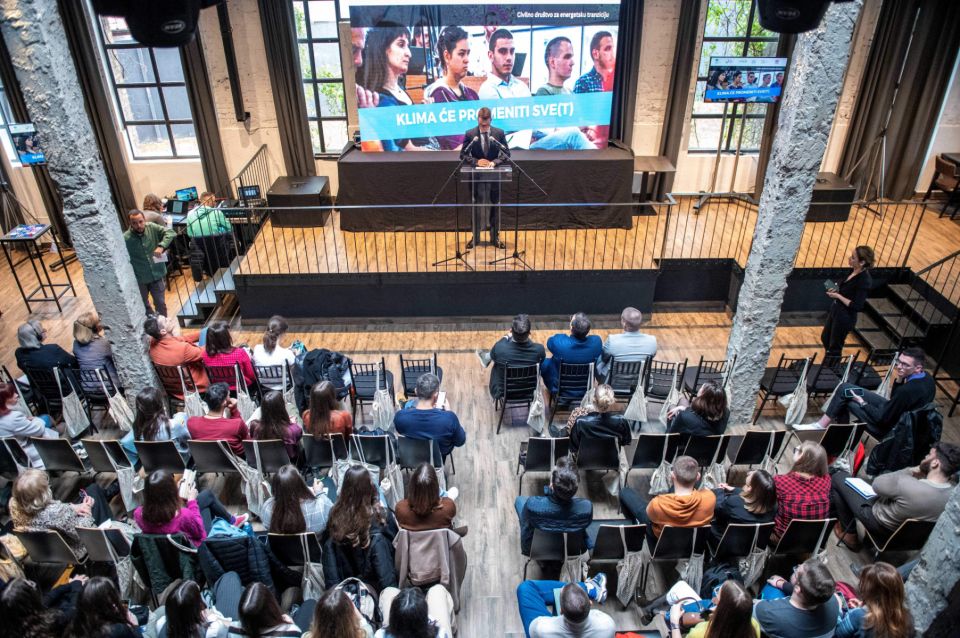Young people need clear and easily accessible sources of information when it comes to climate change, but also a changed approach to formal education from schools to colleges. Also important are informal programs and opportunities that will introduce young people to this problem, as well as solutions. Christopher Leigh from the British Embassy in Belgrade emphasized the importance of the education process in the early engagement of young people in the necessary climate actions.
Climate change leads to rising temperatures and frequent heat waves, melting ice caps and glaciers, rising sea levels, droughts and devastating storms, but they are not the same in every region and do not affect every individual equally. The Balkan region is warming faster than the global average, and according to research, Serbia is the most vulnerable to climate change in the region.
Climate change affects the health of each of us - regardless of which faculty we study, what we do, or how and where we live. Everyone in their profession can contribute to the fight against climate change, because everyone has a different perspective and proposed solution.
WHAT CAN WE DO AND WHAT IS THE ROLE OF YOUTH?
The climate for the next 30 years has already been predetermined thanks to the previous emissions of gases with the greenhouse effect. For example, each of us annually produces four tons of carbon dioxide (heating, cooking, powering phones, laptops, and so on), while the atmosphere still contains carbon dioxide emitted by two generations before us. This is a generational injustice suffered by young people, but what is up to us is to ask ourselves what we can do and be "critical optimists", as indicated by Zvezdana Bozovic, a delegate of the RES Foundation at last year's COP 28 (The UN Climate Change Conference).
By the time every young person grows up and is interested in starting a family, it will be more and more difficult to produce food, access to drinking water will be difficult, they will live under long and strong heat waves, etc. which is directly related to the emergence of new diseases, our health and human migrations.
The future depends on how much carbon dioxide we emit, primarily on the way we produce and use energy, leaving fossil fuels, such as coal, as soon as possible. Young people are here, interested in the issue of climate change, and what they need are open opportunities in all sectors of society so that young people can be a part of current and future solutions. This cooperation of all sectors and professions in society is one of the first steps that young people recognize in the fight against climate change.
With professionals from various fields, the participants of the Green talks talked about how climate change is related to different occupations, and lecturers from the University of Exeter in the UK talked about the importance of the Art of Storytelling in the effective communication of topics arising from climate change.
The following day, the Belgrade Open School, in cooperation with the Green Art Incubator, organized a workshop at the Faculty of Dramatic Arts in Belgrade, where lecturers from Exeter University from Great Britain gave students a lecture, as well as a practical part on the topic of storytelling and the creation of various written artistic content on climate change.
The conference "Climate Changes All" was organized in cooperation with the RES Foundation and The Center for the Promotion of Science within the project "PlugIn - Civil Society for Energy Transition". The project is implemented with the support of the British Embassy in Belgrade, and in addition to the Belgrade Open School, the project is implemented by the Renewables and Environmental Regulatory Institute (RERI).
You can view the photo gallery from the event here.
Author of the photos: Greenfield production

 381 60 30 65 800
381 60 30 65 800






